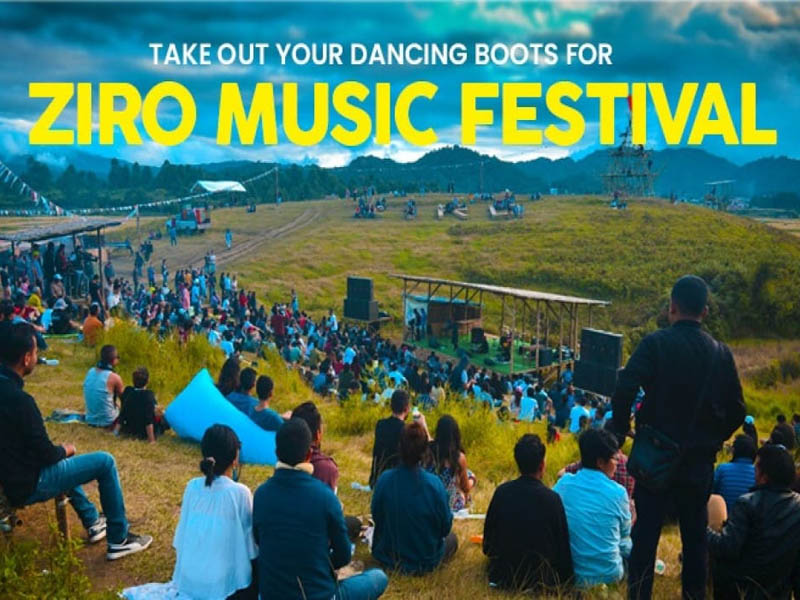The Indian Performing Right Society Limited (IPRS), a Govt. the authorized copyright society representing more than 9000 eminent authors, composers, and publishers across the nation was recently present at the ZIRO Festival of Music to engage with and educate songwriters, composers, and music makers about their rights as a creator and how to make the most from their creations. During its visit, IPRS emphasized the role of copyright societies and how it benefits a creator to be part of a community that incessantly works towards protecting their rights and helping them to garner their rightful dues and credit.
The Indian music industry today is growing in creativity and consumption, with multiple genres of music gaining prominence from across the nation. Regional and non-film music is gaining popularity and winning fans beyond geographies. Thus, continuing with its extensive outreach programmes, IPRS reached out to independent artists from the seven sister states at the festival.
But it is alarming that a majority of talent from the remote corners of the country are not aware of their rights as a creator, the clauses outlined by the Copyright Law in favour of music creators, and how to protect their rights and rightful dues.
IPRS has been incessantly working towards empowering and educating music makers on matters that shape their careers and help them reap more from their creations. IPRS’s collaboration with the Ziro Festival of Music is a significant step towards that.
Ziro Festival of Music took a positive step towards supporting Creators’ rights by licensing the music they played. Thus ushering in a new beginning in North East, they upheld the importance of the fair use of music and giving music creators their due rights. The Ziro Festival of Music held from Sept 29th to Oct 2nd was a spectacle to applaud. Wonderfully organized, the music event had carefully curated independent music acts from across the world and was attended by music enthusiasts from all walks of life.
At the festival, participants from various segments and genres of the music industry learned about the role of a copyright society and its theatre of operations. Why does music licensing matter, and significance of music copyright in the digital era?
Speaking on the same, Rakesh Nigam, CEO of IPRS added: “After a prolonged Covid hiatus, we are glad that IPRS could attend the Ziro Festival of Music and reach out to the independent artists from the far Northeast. We take this opportunity to inform everyone about the relevance of music in our lives and why it is important to support those behind the music. As a music copyright society, we strive to create a sustainable music ecosystem that will nurture fair pay and fair play of music, encouraging creativity and fuelling enthusiasm among young songwriters, composers, and independent artists. Thus, providing a breeding ground for upcoming talent across the country beyond the bustling cities. We thank and congratulate the organizers of the Ziro Festival of Music, for their efforts taken to promote the wide array of independent music from far east and across the globe, while upholding the rights of music creators.”
The IPRS team met and educated budding songwriters, composers, and independent artists about music copyrights at the Ziro Festival of Music. IPRS is the first music copyright society, traveling across the country to educate music makers on the importance of music copyright and licensing. The IPRS has already conducted its proprietary “Learn and Earn” workshop, in Chennai, Hyderabad, and Kolkata. It is planning to conduct the same in Punjab shortly.
IPRS is India’s only Copyright Society registered under the Copyright Act, 1957, and counts more than 9,000 of India’s best-known authors, composers and music publishers as its members. IPRS is authorized under the Copyright Act, 1957 to carry on the business and granting of licenses in respect of literary works and musical works assigned to it by its members as well as collect and distribute authors’ statutory royalties, for the exploitation of these works either by way of live performances and/or sound recordings through any medium except when exhibited as a part of a cinematograph film shown in a cinema hall.


